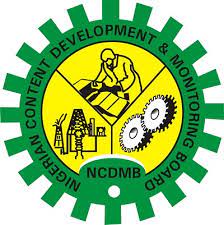
THE executive secretary, Nigerian Content Development and Monitoring Board, NCDMB, has disclosed that the promotion of Science, Technology, Engineering, and Mathematics, STEM, education in Nigeria, would impact the nation’s 10-Year Strategic Road Map.
The Road Map is targeted at the retention of over $14 billion out of $20 billion estimated industry spends in-country, creation of over 300,000 direct and indirect jobs for Nigerians and growing Nigerian Content from 27 per cent from 2017 to 70 per cent by 2027.
Speaking at the commencement of the training of teachers, championed by Siemens Energy Nigeria, NCDMB, and Empowering Africa through Education Initiative, EATEI, which commenced in Yenagoa, Bayelsa state, Wabote, said: “I feel elated to inform you that over 11,000 Nigerians have benefited from human capital interventions in various disciplines, skills, and competencies championed by the Board and in collaboration with stakeholders in the oil and gas industry and its linkage sectors since its inception in 2010.”
Wabote, who was represented by Chukwuma Ama, General Manager, Capacity Development, NCDMB stated: “The oil and gas industry is technology-intensive and innovation-driven and we are aware of the rapidly changing global technology and smart innovations, which is largely driven by STEM education and the increasing desire to create value for humanity and the global society.
“The training, which shall largely practical and hands-on intensive, is designed for two weeks and structured in two tranches. In the first week, Siemens Stiftung and Empowering Africans through Education Initiative will train 15 facilitators/multipliers will in turn train the 30 teachers nominated by the Bayelsa State Universal Basic Education Board from 10 Primary schools selected from Bayelsa State.”
He added: “After the training, certificates will be awarded to the facilitators/multipliers and the trained teachers. Also, 12 Experimento 8+kits will be deployed for further training of teachers. To ensure the desire impact and value is achieved, the Siemens experiment team will conduct evaluations, including the effects of the training model on the students’ performance and retention abilities.”
Similarly, the head of business development, Siemens Energy, Oladayo Orolu, said: “Improving education and vocational training structures are crucial for creating individual prospects and economic growth with sustainable productivity. The training is part of Siemens’s strategy towards building human development capacity in Nigeria.”
Orolo, who noted that the intention is to stimulate the minds of young Nigerians, as well as provide them with the tools to work with, said: “We want to expose Nigerian children to develop a keen interest in STEM education, not just to learn employable skills, but also to enable them to develop, innovate and create their own designs, which can compete with some of the best in the world.
“We have already trained about 600 primary school teachers in Lagos State, which would translate to thousands of pupils benefiting from this type of training. We are planning to replicate the same thing and do even more in Bayelsa State and other Niger Delta states in the coming months.”
“We expected a number of pupils to be trained through this process whereby those that are trained at the event would also train other teachers that would eventually train the pupils.”
He added: “Siemens is committed to this program that is taking place in Bayelsa, we also want to take it to other parts of the country, so that everybody would benefit.”
Source : The Vanguard.